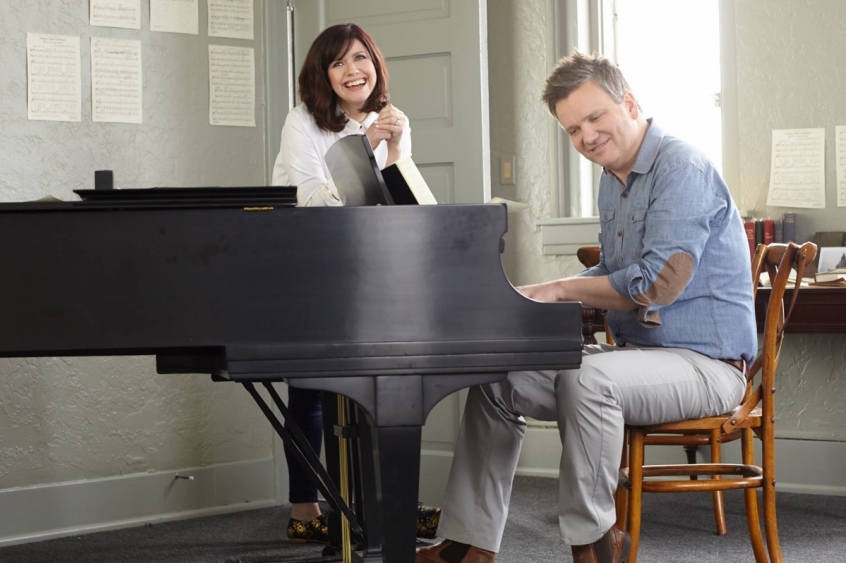
Over the years, Keith Getty and his wife Kristyn - together with their writing partner Stuart Townend - have gifted the church with cherished songs that will be sung for generations to come. Songs like In Christ Alone, The Lord is My Salvation, and There is a Higher Throne.
Their mission, though, is not only to bless the church with rich Christian music, but to inspire and resource churches and families in singing together.
With this in mind, they launched Sing! three years ago initially as a conference bringing together worship leaders and anyone involved in church music ministry to explore together the connection between music, theology and artistry.
It's become a fully fledged movement, with plans afoot for a foundation to take its vision further.
While much of their ministry is State-side, this month the Gettys hosted sell-out Sing! conferences at the Belfast arena in their native Northern Ireland, and another at Edinburgh's Usher Hall, marking the launch of the first Sing! global arena tour.
We caught up with Keith to find out more about Sing! and the revival he longs to see in Christian music.
CT: Sing! has a particular message which is to bring together churches and congregations in worship, particularly through the singing of hymns together. What prompted this movement?
Keith: It was prompted by the 500th anniversary of the Reformation because Martin Luther wanted to sing the Gospel and sing the Scriptures. Not only that, but he wanted to get families and churches singing and he was quite a radical in how he did that. I wanted to look at the question: how are we doing 500 years on?
Although there's so much emphasis on church music, it's largely coming from the Christian music industry, which is largely owned by Wall Street, and there's no area in greater need of reformation than Christian worship.
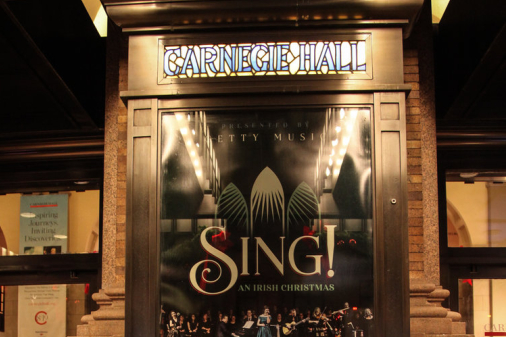
CT: A lot of Christians regularly listen to contemporary Christian music and sing it in their churches each week. What do you think it is that modern church music lacks?
Keith: I think there are two or three things. We're supposed to allow the word of Christ to dwell in us richly when we sing. The Psalms and songs of the Scriptures are so rich in the truth of God, and our songs by comparison are somewhat narcissistic.
They don't focus on the breadth of the God of the Bible, certainly not in any depth, but are self-obsessed and actually starve us of all our human emotions - the more complex emotions especially. They aren't full of the Gospel and mostly they aren't full of eternity.
So the first thing we need to look at is what we are singing.
But the second thing is to look at what singing is and singing together, both in our families and in our churches. The sound of the church's music is the sound of the congregation singing together and that's what we want to get back to - to congregations that are passionate singers and that are singing the Gospel.
With that in mind, we want to combine vibrant theology with a higher view of artistry and we want to help churches and families sing together.
CT: Many of us will be familiar with singing together in church, but what does singing together as a family look like for you?
Keith: It can take all kinds of different shapes, just like churches can take different shapes. But as a parent, I think it's so important that we fill our homes with songs of the Lord.
Every child in the world has a song in their hearts; every child sings every day. So in the midst of taking my girls to horse riding and making their breakfast, going to their friends' houses and parties and visiting their grandparents or whatever it is; in the midst of all those things - none of which will affect them in 20 years' time - it's so important that we are filling them with the truths of the Gospel and Scriptures in a way that they can carry on and that will live with them.
I can't be sure what my kids will be doing in 20 years' time but we can, through songs, ensure that they know the Gospel and know the Bible in a very deep and creative and beautiful and emotional way.
CT: Do your children enjoy music and singing as much as you and Kristyn?
Keith: I think they do - although I've no intention of any of them going into the music industry! But they love singing. In our home we sing a hymn every night before they go to sleep and we do the same hymn every night for the month and then in the morning we do devotionals with Scripture songs and short songs and fun songs that they can dance to.
And some nights we sit down and teach them what the song's all about, how to sing it well and make a little study out of it. Or Kristyn just lies beside them and they ask questions about it, like a casual conversation. Honestly, some nights, we're so tired we just get them upstairs, brush their teeth, get them into bed, sing a song once and slam the lights off!
So it's a mixture of everything.
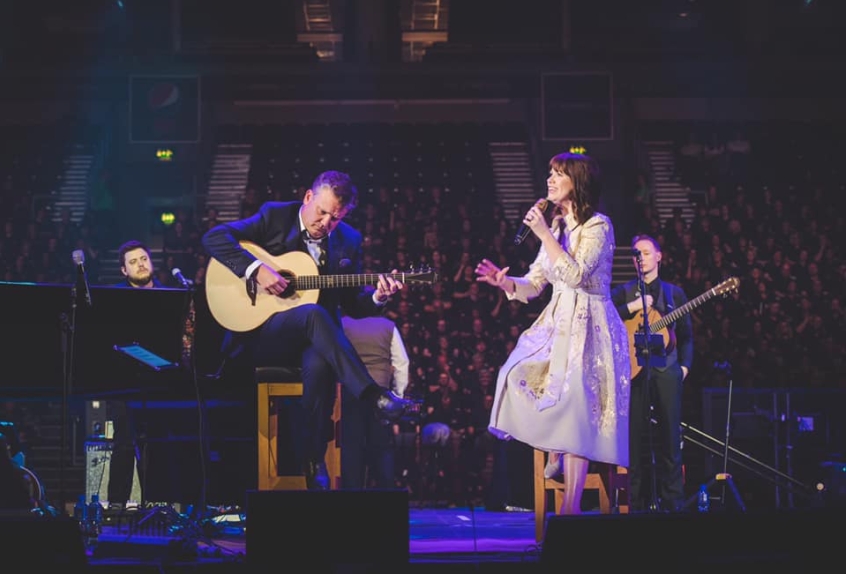
CT: You are on the road a lot so do you take the kids with you?
Keith: Kristyn and I go everywhere together. We have been married for 15 years this week and have never had a night apart. And together, we've only had about 10 or 12 days without the girls. We love it.
CT: Sometimes in church, we can think in terms of: there are people who 'do music' and there are people who don't. What does musical artistry and singing together look like for people who don't think of themselves as musical?!
Keith: It's a backward way of looking at it because we are all Christians and as such, we are all commanded to sing. It's the most common command in Scripture. We're all created to sing, we all have different kinds of voices and the Gospel of Christ compels us all to sing.
So I would say, all of us are singers. The sound of our congregation's music is the sound of our church's singing. If an instrument helps you sing better, use it; if it doesn't, don't. The main goal is to have the congregation singing together, which is what we are trying to help.
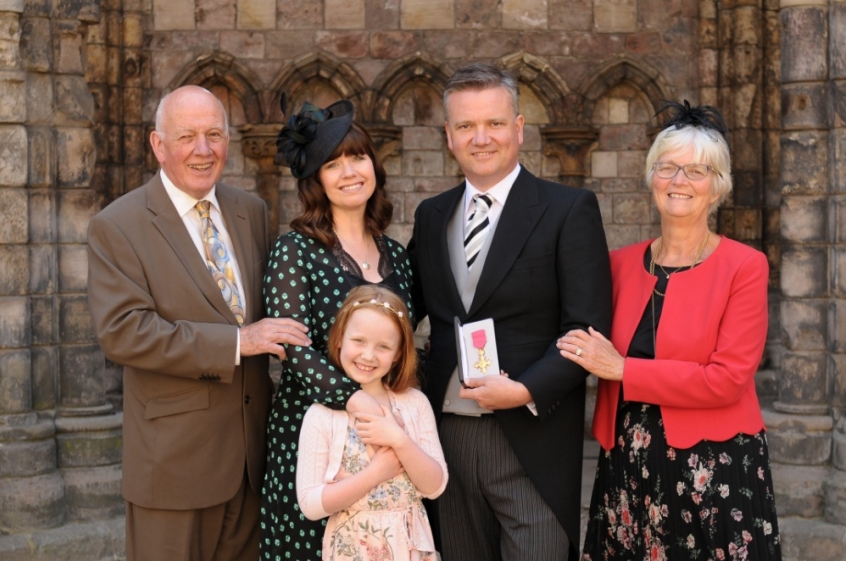
CT: You yourself are from Northern Ireland but you live in the US and from time to time you tour in the UK. What differences do you see across the three countries or is it a pretty similar picture?
Keith: I think we have slightly more tradition and are slightly better at singing together in Ireland and Scotland than in America. But I see the same dangerous side - this obsession with the leader and this lack of obsession with getting our congregations singing. I think that's a dangerous thing.
And I think singing songs that are very shallow and narcissistic, and aren't deep is a huge danger. Singing songs that we know we won't be singing in 30 years is terrible so we need more classic songs in the midst of what we do.
We in Ireland and Scotland and England have an extraordinary hymn heritage and we need to lean into it and stop filling our services full of these modern songs. I'm saying that and I'm a modern song writer! I think every church should write their songs and every church should sing some contemporary songs, but we need a core of songs that we carry with us through life.
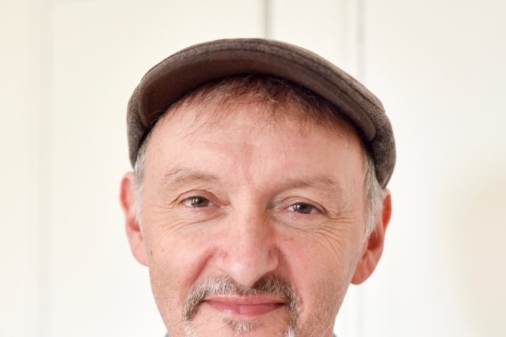
CT: One of your longest-running songwriting partners is Stuart Townend. Are you working with him on anything right now?
Keith: Oh yes, we write songs together every year. The song I'm most excited about is a song we wrote together last year which is a setting of Psalm 130 to music. My goal over the next five to seven years is to set all the Psalms to music and we've started with this one. We're really pleased with how that's gone.
CT: What's happening with the Sing! conference next?
Keith: We've got a five-year plan. We've looked at the Psalms and the life of Jesus and next year we will be going through the whole Bible. And we are hoping to have over a hundred countries there next year. That's a massive challenge. But it's very stimulating and it's important. It's the right thing for us to be doing.
CT: Last year, you were awarded an OBE. How did it feel to receive that kind of recognition?
Keith: It was an honour but one doesn't take these things too seriously because what the Lord thinks at the end of our lives is the only thing we really need to be worrying about!
But it was the first time it had been awarded to someone in the modern Christian music movement and so that was a privilege. But I think it is also a responsibility and these days, I see my role more and more as being a steward and educator of the next generation, not just a writer.
Find out more about Sing! here













